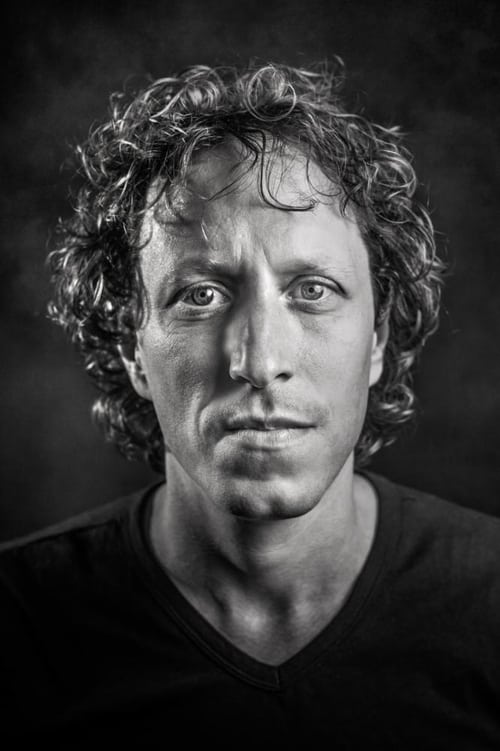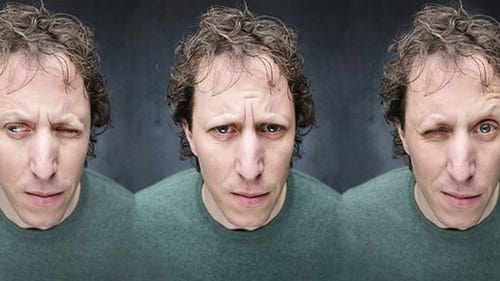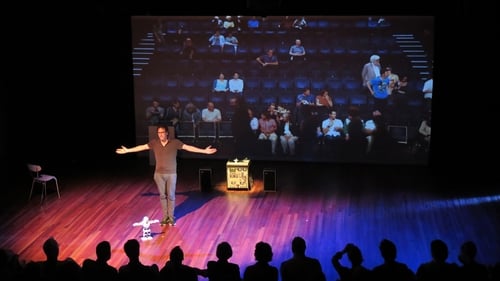
Micha Wertheim
Nacimiento : , Groningen
Historia
Wertheim studeerde Cultuur- en Wetenschapsstudies aan de Universiteit Maastricht. Tijdens zijn studie begon hij met schrijven voor de faculteit en later voor de universiteitskrant. In 1995 kreeg hij als columnist een vaste plek op de achterpagina van ‘De Observant’ In 1997 begon hij op die zelfde achterpagina een wekelijks feuilleton waar hij twee jaar later mee stopte. In1998 nam hij het initiatief tot het opzetten van Mosaiek, een door studenten gemaakt cultuurwetenschappelijk tijdschrift. In 1998 rondde hij de studie af met een doctoraalscriptie over het leven en werk van Franz Kafka onder de titel Wunsch, Indianer zu werden: een onderzoek naar de betekenis van het reismotief in het werk en leven van Franz Kafka. Na zijn afstuderen verhuisde Wertheim naar Amsterdam. Daar werd hij in café Toomler na twee audities aangenomen bij het stand-up gezelschap Comedytrain. In dat zelfde jaar, 1998, begon Wertheim met het maken van radiodocumentaires en het schrijven van bijdragen voor VPRO's De Avonden. Begin 2004 won Wertheim de jury- en publieksprijs tijdens het Leids Cabaret Festival, sindsdien treedt hij voornamelijk binnen en soms buiten Nederland op als cabaretier.

Lyricist
The Oudejaarsconference (New Year's Eve performance) of the year 2023 by the Dutch comedian Micha Wertheim.

Writer
The Oudejaarsconference (New Year's Eve performance) of the year 2023 by the Dutch comedian Micha Wertheim.

The Oudejaarsconference (New Year's Eve performance) of the year 2023 by the Dutch comedian Micha Wertheim.

Director
The first show by the Dutch comedian Kasper van der Laan.

Writer
Micha Wertheim asks himself and his audience how to live and survive in a gloomy future perspective. Populism seems to have been taken for granted by both right-wing and left-wing parties. Racism, sexism, anti-Semitism seem to be increasing. The planet is dying. The factory farming industry is still booming. We have reached a dead end and we are standing with our noses against a blank wall. All we can do now is turn around to see how we got here, with our backs against the wall.

Himself
Micha Wertheim asks himself and his audience how to live and survive in a gloomy future perspective. Populism seems to have been taken for granted by both right-wing and left-wing parties. Racism, sexism, anti-Semitism seem to be increasing. The planet is dying. The factory farming industry is still booming. We have reached a dead end and we are standing with our noses against a blank wall. All we can do now is turn around to see how we got here, with our backs against the wall.

himself
This comedy/theatre show is the sequel to 'Micha Wertheim: Somewhere Else'. This second show starts exactly where the first show ended: in the same theatrical scenery, with the same robot. But this time Wertheim surprises his audience by showing up. He tells about how the first experimental comedy show was received and contemplates about the magic of theatre and art in a society about the right to exist of art in a society that allows less and less doubt and confusion. When Robot falls into a depression, the boundaries between theater and reality begin to blur.

Writer
This comedy/theatre show is the sequel to 'Micha Wertheim: Somewhere Else'. This second show starts exactly where the first show ended: in the same theatrical scenery, with the same robot. But this time Wertheim surprises his audience by showing up. He tells about how the first experimental comedy show was received and contemplates about the magic of theatre and art in a society about the right to exist of art in a society that allows less and less doubt and confusion. When Robot falls into a depression, the boundaries between theater and reality begin to blur.

Writer
The bigger the audiences for Dutch comedian Micha Wertheim’s shows became, the less he had to do to make them laugh. In one early show, he suggested that the audience would be better off without him. So in 2016, he acted upon this suggestion with an experiment that made theater history: he wasn't physically present onstage but somewhere else. The audience wasn't aware of this in advance, though they did get a hint in the form of a pre-recorded "live" radio interview from a remote studio. "I see my audience as my children," Wertheim says in this interview. "You have to educate them, and that’s what I’ve been doing for the past 15 years. At first you have to constantly be there watching them, but there comes a time when you have to trust them to get on with it without you." With some help from a robot, a printer, a stereo and a set of headphones, the members of his audience were able to make their own performance.

The bigger the audiences for Dutch comedian Micha Wertheim’s shows became, the less he had to do to make them laugh. In one early show, he suggested that the audience would be better off without him. So in 2016, he acted upon this suggestion with an experiment that made theater history: he wasn't physically present onstage but somewhere else. The audience wasn't aware of this in advance, though they did get a hint in the form of a pre-recorded "live" radio interview from a remote studio. "I see my audience as my children," Wertheim says in this interview. "You have to educate them, and that’s what I’ve been doing for the past 15 years. At first you have to constantly be there watching them, but there comes a time when you have to trust them to get on with it without you." With some help from a robot, a printer, a stereo and a set of headphones, the members of his audience were able to make their own performance.

Writer
Stage registration of the sixth comedy special by the Dutch comedian Micha Wertheim. The comedian notices that he has found his own audience through the years. But Wertheim also notices that his audience projects their own biased opinion on the performance, and there's nothing that Wertheim can do to change that opinion.

Himself
Stage registration of the sixth comedy special by the Dutch comedian Micha Wertheim. The comedian notices that he has found his own audience through the years. But Wertheim also notices that his audience projects their own biased opinion on the performance, and there's nothing that Wertheim can do to change that opinion.

Writer
Stage registration of the fifth comedy special by the Dutch comedian Micha Wertheim. At the start of the performance, the performance appears to be unfinished: Micha Wertheim is still writing and the comedian has a writer's block.

Himself
Stage registration of the fifth comedy special by the Dutch comedian Micha Wertheim. At the start of the performance, the performance appears to be unfinished: Micha Wertheim is still writing and the comedian has a writer's block.

Writer
Stage registration of the fourth comedy special by Dutch comedian Micha Wertheim. A show about anger, repetition, change, and repetition.

Himself
Stage registration of the fourth comedy special by Dutch comedian Micha Wertheim. A show about anger, repetition, change, and repetition.

Himself

Writer
Stage registration of the third comedy special by Dutch comedian Micha Wertheim. A show about the "news addiction" that dominates the current media landscape, and about the problematic functioning of rhetorical devices like irony and satire.

Himself
Stage registration of the third comedy special by Dutch comedian Micha Wertheim. A show about the "news addiction" that dominates the current media landscape, and about the problematic functioning of rhetorical devices like irony and satire.

Writer
Stage registration of the second comedy special by the Dutch comedian Micha Wertheim. This performance takes place in a dream, a dream in which Micha Wertheim shares all kinds of confessions, for example about how he manages to cope with the knowledge that he is probably not a real genius.

Himself
Stage registration of the second comedy special by the Dutch comedian Micha Wertheim. This performance takes place in a dream, a dream in which Micha Wertheim shares all kinds of confessions, for example about how he manages to cope with the knowledge that he is probably not a real genius.

Writer
Live from Toomler, Amsterdam. Micha Wertheim tells about his time in hospital when he was treated for thyroid cancer.

Himself
Live from Toomler, Amsterdam. Micha Wertheim tells about his time in hospital when he was treated for thyroid cancer.

Writer
Stage registration of the first comedy special by the Dutch comedian Micha Wertheim. The central idea of the performance is: 'Some people think I'm arrogant, but I spit on them."

Himself
Stage registration of the first comedy special by the Dutch comedian Micha Wertheim. The central idea of the performance is: 'Some people think I'm arrogant, but I spit on them."






